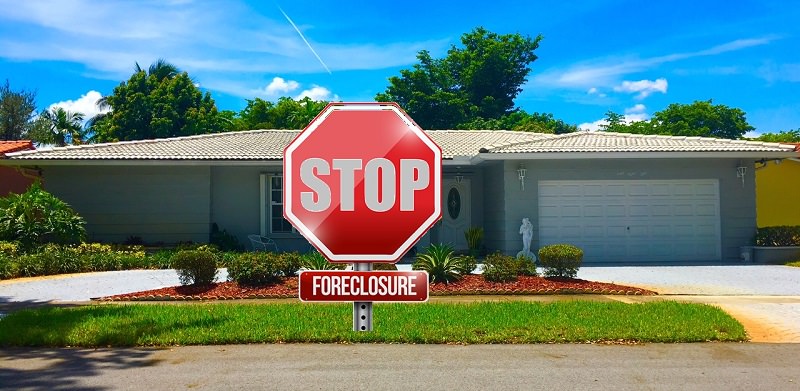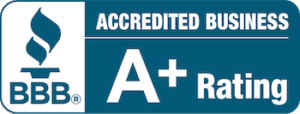STOP FORECLOSURE IN FLORIDA
Residential guide to the foreclosure process, stop foreclosure and foreclosure help
Not paying your mortgage no matter the reason there will be a red flag on your account and can eventually lead to foreclosure proceedings. If you find yourself already in the foreclosure process, don’t despair you can always get foreclosure help. Even though homeowners certainly never plan on being
delinquent on their mortgage payments or losing their homes, hope is not lost.
How Foreclosure Happens?
You’ve obtained a mortgage.
Let’s say you’ve obtained a mortgage on a piece of residential property. This property could consist of a condominium, single-family home, duplex or townhouse, for example. You may be using this property as your home, as a second home or as an investment property.
You haven’t paid the mortgage.
You haven’t paid the mortgage on time or at all, and it’s either in arrears or in default. You’ve received notice from your lender, generally issued as a ‘Notice of Default’ or as an acceleration letter for the total mortgage debt. It’s claiming the whole amount due as stated in the note and the mortgage.
You don’t cure the default.
If you don’t cure the default, a lawsuit will be filed, which generally consists of a Complaint, possibly discovery and Notice of Lis Pendens. A lawsuit is filed and will be served upon you. This action establishes that it’s the intent of the lender to begin a suit to foreclose on your mortgage as well as pursue other remedies that can include a suit on the Note, a suit on the Guarantee or the reestablishment of a lost instrument.
The Foreclosure Process.
Definition
In legal terms, you are referred to as the “mortgagor”; this means you are the borrower on the mortgage. In the lawsuit, you’ll be referred to as a ‘Borrower,’ a ‘Defendant,’ or in some cases ‘the Mortgagor’. The lender is legally referred to as the ‘mortgagee’, ‘Lender’, or the ‘Plaintiff’.
The Foreclosure Action
The foreclosure action is defined as any of the Lender’s actions attempting to foreclose on the property and receive a judgment setting the total amounts due including the principal, interest, insurance, taxes, attorney fees and any court costs that are due to the lender for initiating the foreclosure proceedings. It also covers the right issued by the Court to declare a Clerk’s Foreclosure Sale selling the property in order to recover the amounts owed to the Lender.
Get Foreclosure Help
You can file a responsive pleading to the complaint within 20 days after the suit has been filed. It’s recommended that you seek foreclosure help from an experienced real estate attorney in this matter unless you’re familiar with these procedures. If you can’t afford an attorney, there are programs that are available to help you. The Florida Bar has a program called FASH, accessible at 1-866-607-2187, that may be able to assist you. But even if you’re unable to afford an attorney, you should still respond to the allegations against you in order to avoid a default judgment being entered against you. This step will not stop the foreclosure but it will prevent a quick judgment against you.
The Law Suit
If the Lender/Plaintiff in the action can’t obtain personal service of the lawsuit upon you, it can instead publish a notification for the foreclosure action once per week for at least four (4) consecutive weeks. This will be considered equivalent to personal service of the lawsuit. Be aware that just because you weren’t served with a Complaint after you received a Notice of Default doesn’t mean that a foreclosure action hasn’t been initiated.

Summary Judgment Motion
Be aware that during the foreclosure action, your lender may have an opportunity to request a ‘Summary Judgment Motion.’ This asks the Court to enter a prompt judgment allowing the lender to foreclose on the mortgage. Generally speaking, you can anticipate that sometime between three (3) and six (6) months (or possibly longer, given current drawn-out foreclosure dockets) following the filing of the foreclosure suit, the lender will be able to file for a Motion for Summary Judgment. After this is filed, the lender serves affidavits establishing the total amounts due including costs incurred and attorney fees.
A hearing regarding the Motion for Summary Judgment will typically take place no earlier than twenty-five (25) days following the mailing of the Motion for Summary Judgment to you (this assumes twenty days at a minimum for hearing time and at least five (5) days for mailing time). At this hearing, you need to appear before the Court and advise the Court of your position.
Before the Summary Judgment hearing, you’re able to file an affidavit provided by you under oath stating facts you believe would preclude the Lender/Plaintiff from receiving Foreclosure Judgment. This affidavit needs to be filed no more than two (2) business days before the hearing (you can add five (5) days if it’s mailed) and delivered to the opposing counsel. Note this affidavit won’t benefit you unless you have viable claims to make.
The Foreclosure Sale
After a Foreclosure Judgment is granted, typically a judicial sales procedure takes place pursuant to F.S. §45.031. This requires publication of notice of the foreclosure sale once per week for at least two consecutive weeks in a general circulation newspaper in the county where the property is located. This notice must include the time and date of the sale. At the moment, foreclosure sales in the south Florida area are generally scheduled between thirty (30) and sixty (60) days after Foreclosure Judgments are entered. Note that this is dependent on the scheduling of the Clerk’s Docket. Also understand that the relevant Statute, F.S. §45.031(a), states that dates shall “not be less than twenty (20) days or more than thirty-five (35) days after the date of the final judgment.” The Statute has been construed liberally, so time periods indicated may well be extended.
At all Foreclosure Sales, the Lender/Plaintiff can bid as much as the amount of the judgment. Third parties are also able to make appropriate bids to acquire the property.
After Foreclosure Sale
No more than ten (10) days after a Foreclosure Sale, the Clerk transferring legal title of the property will issue a ‘Certificate of Title’ to the Foreclosure Sale’s successful bidder. Once this bidder receives the Certificate of Title, they’re able to apply for a ‘Write of Possession’ served by the Sheriff, allowing them to finally take possession of the property. This would allow the successful bidder to gain possession of the property via the Sheriff’s Department.
10 Ways to Stop Foreclosure:
Stop Foreclosure – Several proactive and positive steps you can take :
1. In order to Stop Foreclosure, you can initiate contact with your lender’s loss mitigation department in order to determine how you can resolve the issue.
2. You can contact a representative of the government’s “Making Home Affordable” program (see www.makinghomeaffordable.gov). The representative can tell you if you’re eligible for government-sponsored loan modifications;
3. You can ask your lender to modify the loan;
4. You can pay the lender the amount needed to reinstate the loan;
5. You can make a forbearance agreement with your lender by contacting either the lender’s loss mitigation representative, the foreclosure attorney or possibly both to see if there’s a way to reinstate the payments that would allow you to forbear (meaning to delay) your payments for a period until you’re financially capable of making them at a mutually agreed sum;
6. You can list your property with a broker immediately to try to sell it at whatever price you can get for it; this generally results in the property being categorized as a short sale;
7. You can try offering the property to the lender. Allowing the lender to accept an unconditional fee-type simple deed to the property that doesn’t waive the lender’s deficiency;
8. You can contact the lender and figure out if the lender would simply take a deed to the property and simultaneously release you from further deficiency;
9. You can request the Court to let you mediate the case using a Court-Certified Mediator. This would require you to file a motion or a request for the Court to allow mediation to take place. This would need to be followed by a formal request in the court files, obtainable by contacting the associated Judicial Assistant of the Judge for the case and getting a time and date to appear before the Court in order to present a brief presentation regarding this point.
10. Bankruptcy if these other avenues fail to stop the foreclosure, homeowners can file Chapter 13 bankruptcy which legally puts a stay on the foreclosure. At this point, all creditors are legally bound to stop their collection efforts, including selling the home in the foreclosure process. However, there are some exceptions and homeowners may still risk losing their homes but an attorney can help explain the legalities.
Local Resources to Help You Stop Foreclosure
After speaking to their lenders, homeowners should look for local resources to help
• A local realtor – he or she may know valuable information about your particular city and neighborhood.
• A local real estate attorney to explain you the law and your rights.
• A local, honest real estate solutions company like our company.
We can lay out all of your options to your specific situation.
If you don’t have the time to wait to try to sell your house a company like ours may be the best solution.
In Closing
Homeowners can get overwhelmed with the threat of foreclosure and the possibility of losing their houses. If you ever find yourself in this situation, you should seek the help of professionals in your area. BiggerEquity is a Real Estate Solutions Company. We are experts in the south Florida Metro area and have worked with many homeowners in similar situations just like yours either stop foreclosure all together, protect their credit, or just give free advice.
We at BiggerEquity helped many of homeowners sell their houses quickly without any fees and all cash offers. So, if you want a full, no obligation, no-hassle, detailed review of your situation where we can lay out in easy to understand details EXACTLY what solutions will work for YOUR SPECIFIC SITUATION… you are more than welcome to contact us anytime.
A+ BBB – Click for Review

Happy Customers


























From Our Blog
-
Can a Bank Foreclose on a Property with a Lien: What You Need to Know
-
The Truth About REITs: Why Not to Invest in REITs and Protect Your Portfolio
-
Zillow Market Trends by Zip Code: Your Local Housing Market Insights
-
Sell Your House Fast, Any Condition, We Buy Houses for Cash – I Buy Houses Fast in San Diego, CA
-
Can I buy a house that is staged “as is” with the furniture ?
-
Can Banks Profit from Foreclosures: A Balanced Look at the Risks and Rewards
-
Can an HOA Start the Foreclosure Process for a $249 Debt: What You Need to Know

